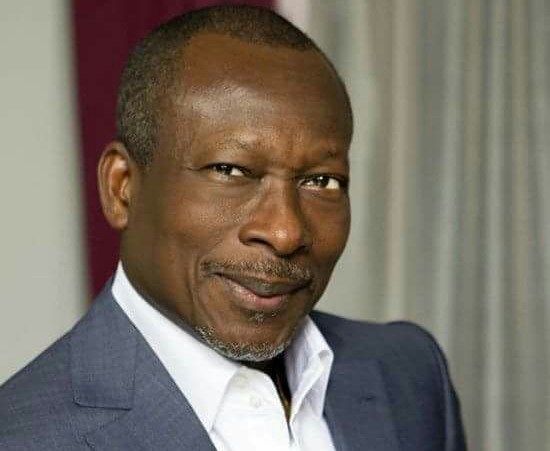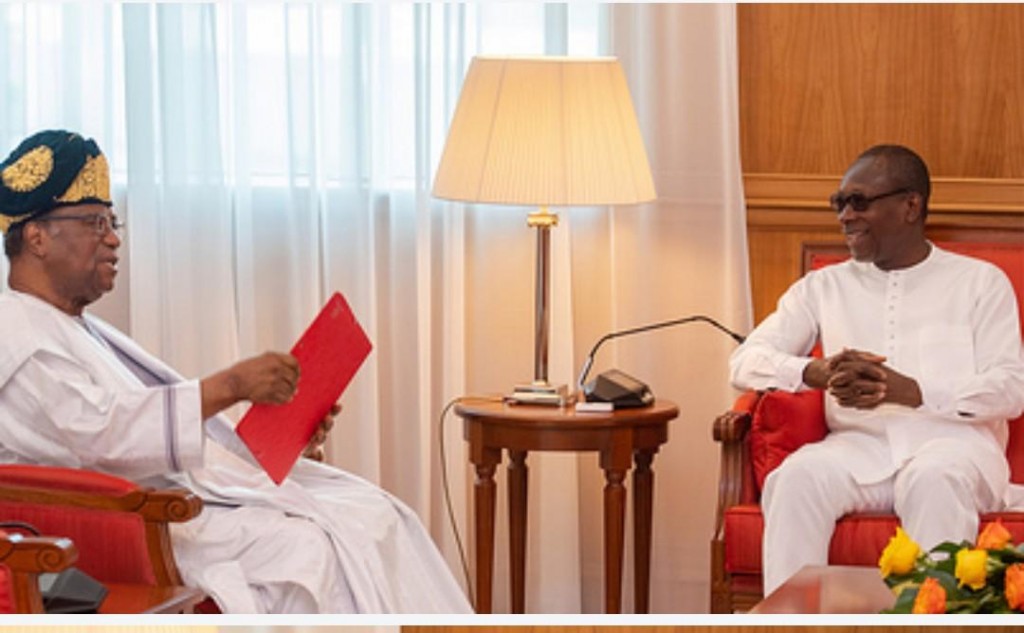Is Benin heading to unprecedented bloodshed under Patrice Talon?

BY JIBRIL TURE
The crisis born out of the exclusion of the collective of the Beninese opposition parties from the legislative elections scheduled for 28 April just got worse after the breakdown of the talks spearheaded by the National Assembly, and President Talon is unwilling to take the last-minute action many hoped he’d take to save the day.
The biggest hope for a way out of the political crisis—arguably the deepest one since Benin embraced multi-party democracy in 1990—came after President Talon’s long discussion with former President Nicephore Soglo at the presidential palace on 20 March, on Talon’s invitation. Soglo told the press the day after the important tete-a-tete:
“After our long discussion, President Talon is committed to easing the tension in the country. He will do everything, despite the foreseeable obstacles, to return to the laws under which he was elected in 2016, without amending the constitution of 1990.”
After the breakdown of the talks between the political parties close to President Talon—the only ones that were found qualified to contest the election—and the collective of the opposition parties, it was widely hoped that Talon would lead the efforts to forge a way out by all means possible, including possibly delaying the elections by a few days or a week—which is not unheard of in the country.
Instead, during the weekly cabinet meeting held yesterday, Wednesday, the government decided to hold the election as scheduled.
Observers saw that coming when, after a meeting with the heads of all the institutions of the republic earlier this week, the so-called mediator of the republic, Josehph Gnonlonfoun (one of them) read a brief communique calling for the elections to be held as scheduled.

Two days earlier, the head of state had met again with former President Nicephore Soglo, one of the most respected people in the country, for what many prayed would be a conversation leading to a solution to the crisis. Instead, after the meeting, in a long statement to the press, the former president painted an alarming picture, pointing out Talon’s reluctance to save the peace. “The task was clearly above his strength, is such was his objective at the start,” President Soglo stated in his account. “Then followed a deaf’s dialogue and flat constitutional explanations.” Soglo’s account goes on:
“Why then not consult the fathers of the 1990 constitution that are Prof. Maurice Glele Ahanhanzo, chairman of the commission on laws and constitutional affairs and his prestigious assistants that were the former presidents of the constitutional court, Prof. Theodore Holo and Robert Dossou?”
President Soglo’s conclusion is so powerful it would be a disservice to him to paraphrase it. So here it is in its entirety:
“In conclusion, I reiterate once again that there will be no credible and peaceful elections in Benin unless all citizens, rich and poor, freely take part in them. Any other option would be tantamount to the pure and simple negation of the Universal Declaration of Human and Citizens Rights: Liberty, Equality, Fraternity.
After the poor (“249,000,000 francs for a party’s participation in the elections”), the rascally laws that could have also discriminated against the women (we would then have lost our dear law professor Dandi Gnammou) and all those that have not been fortunate enough to go to school. Fortunately, the era of the slave trade is behind us; the longest and largest deportation in history; otherwise, the descendant of the director of the Saint Louis Gregory fort in Ouidah would be in heaven.
It’s sheer folly for anyone in our country and in the world to accept Talon’s horrible profession of faith that one should always remember this: ‘What enables a sitting president to be re-elected is his ability to subjugate and hold everybody in his pocket: legislators, mayors, local elected officials, traders, political parties. It’s the way nobody is capable of challenging him, of competing against him. If you face no competition, no matter how bad you are, you will be re-elected,’ end of quotation.
It’s simply ludicrous and astounding. Clearly, Talon is mistaken about the country and the time. No doubt, Jupiter drives crazy those he wants to lose.
My fellow Beninese, our homeland is in danger. Let’s stop Satan!
Rise up, children of Benin!
Thank you.”
The collective of the opposition parties has been found “not qualified” to contest the elections on the theory that their members don’t meet the requirements of the new laws that govern political parties; that assumes that the two parties close to President Talon, which have been found to be “qualified,” have met the said requirements. Not so!
Jean-Baptiste Elias, president of the National Agency to Fight Corruption, is a widely-respected man who has been on the forefront of the fight against corruption in Benin for a decade, if not longer. In a live radio program broadcast over the weekend (on radio Tokpa), Elias slammed members of the parties close to President Talon by saying:
“At least 32 out of the 36 legislators of the president’s majority in parliament, BMP, who have signed the declaration asking the Beninese people to go to the polls on 28 April 2019 have not declared their assets. They, too, have not obeyed the law. If they have not obeyed the law, why would they ask others to obey the law?”
Elias namely mentioned one Jocelyn Degbey by saying:
“Jocelyn Degbey, a member of the BMP, has not, to this day, declared his assets. He, therefore, has not obeyed the law.”
Elias, a fearless man known for his straight talk, did not spare even President Talon:
“The law on corruption and related crimes provides that the officials at all levels declare their assets 15 days after assuming office. Neither President Talon, nor his ministers, nor the majority of the legislators, nor the prefects, have obeyed this law.”
Elias pointed to a well-known fact by asking rhetorically:
“Can each one of them state, in honor, that they themselves paid the required 3,000,000 cfa as part of their party’s fee?”
The assumption is that President Talon has paid for them. For obvious reasons.
Echoing a widespread feeling in the country, Elias begged President Talon to sign a decree to end the stalemate. You can do that, Mr. President, he pleaded:
“All the ingredients are here to create frustration to drive our country into chaos.”
But it was sheer whistling past a cemetery. Yet, the opposition, with support from a large segment of the population, say they will not back down in their resolve to participate in the elections or else. A demonstration staged by a relatively large crowd today in Cotonou was disrupted by tear gas, with a number of arrests.
The Beninese people are known for their quasi-religious commitment to non-violence, something they are teased about by people in other countries that call them “coward.”
Talon may be new in politics, but he was for a long time a behind-the-scene actor in the country’s politics before becoming president just three years ago. He knows his fellow countrymen have been flagrantly violated several times in the past without saying a word, and he’s probably banking on that to be the case again this time around.


